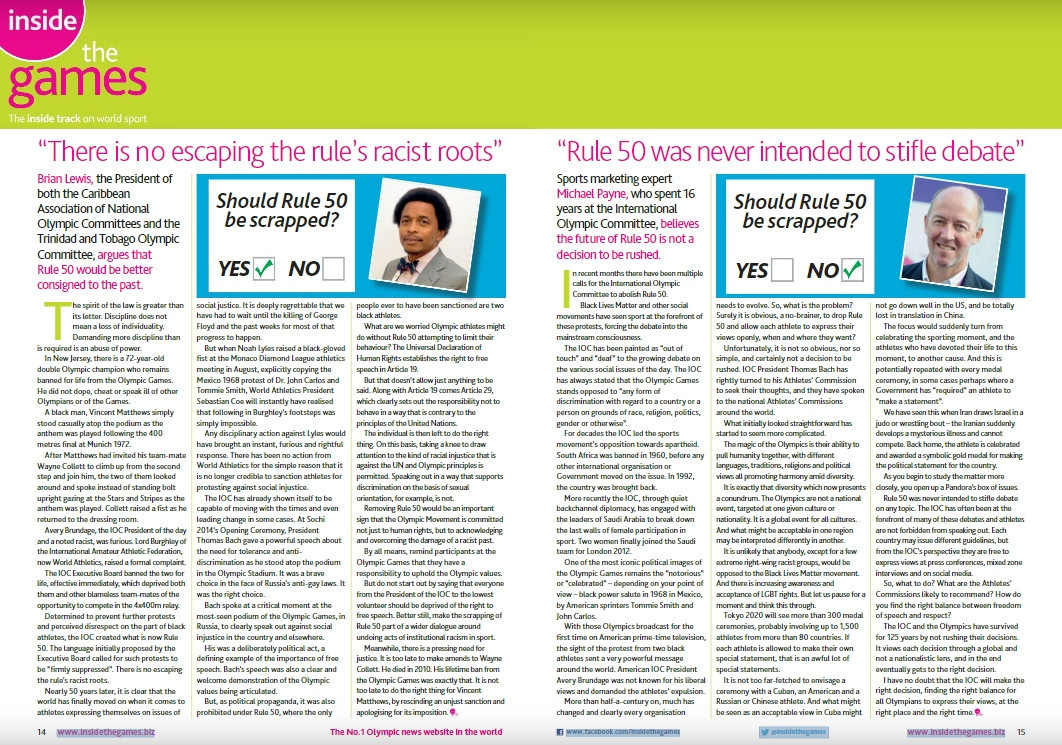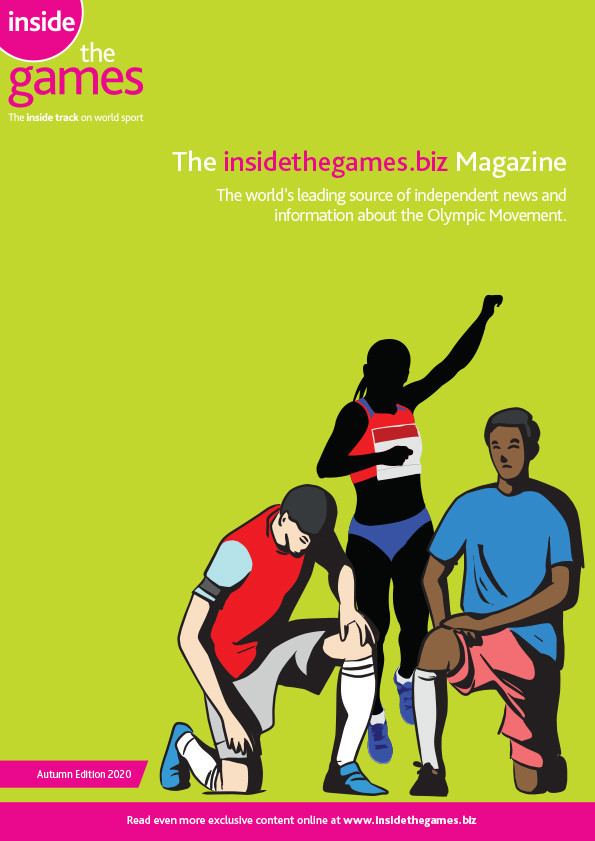Caribbean Association of National Olympic Committees (CANOC) President Brian Lewis believes that Thomas Bach's Opening Ceremony speech at Sochi 2014 was at odds with Rule 50.
The German International Olympic Committee (IOC) President opened the Winter Games in the Russian city with a call to "build bridges" to keep people together.
Caribbean Association of National Olympic Committees (CANOC) President Brian Lewis believes that Thomas Bach's Opening Ceremony speech at Sochi 2014 was at odds with Rule 50.
The German International Olympic Committee (IOC) President opened the Winter Games in the Russian city with a call to "build bridges" to keep people together.
"Olympic Games are never about erecting walls to keep people apart," Bach said.
"Olympic Games are a sports festival embracing human diversity in great unity.
"Therefore I say to the political leaders of the world - thank you for supporting your athletes - they are the best ambassadors of your country.
"Please respect their Olympic message of good will, of tolerance, of excellence and of peace.
"Have the courage to address your disagreements in a peaceful, direct political dialogue and not on the backs of these athletes."
Russia faced criticism in the run-up to the Sochi Games, in particular due to the country's treatment of the lesbian, gay, bisexual, and transgender community.
Lewis, also the President of the Trinidad and Tobago Olympic Committee, has called for the IOC's Rule 50 of the Olympic Charter to be scrapped.
It states that "no kind of demonstration or political, religious or racial propaganda is permitted in any Olympic sites, venues or other areas".
Rule 50 is now under increasing pressure with athletes around the world more keen to make their voices heard.
This is particularly the case after the death of George Floyd at the hands of a white police officer in the United States, and the global rise of the Black Lives Matter movement.
Writing in the Autumn edition of The insidethegames Magazine, Lewis said: "The IOC has already shown itself to be capable of moving with the times and even leading change in some cases.

"At Sochi 2014's Opening Ceremony, President Thomas Bach gave a powerful speech about the need for tolerance and anti-discrimination as he stood atop the podium in the Olympic Stadium.
"It was a brave choice in the face of Russia's anti-gay laws.
"It was the right choice.
"Bach spoke at a critical moment at the most-seen podium of the Olympic Games, in Russia, to clearly speak out against social injustice in the country and elsewhere.
"His was a deliberately political act, a defining example of the importance of free speech.
"Bach's speech was also a clear and welcome demonstration of the Olympic values being articulated.
"But, as political propaganda, it was also prohibited under Rule 50."
Lewis said that Rule 50 has racist roots after black sprinters Vincent Matthews and Wayne Collett were banned from the Olympics for life at Munich 1972.
Matthews invited Collett to climb up from the second step of the podium after winning 400 metres gold, with the pair looking around and speaking as the anthems were played.
Collett then raised a fist as he returned to the dressing room, with Lewis since leading calls for the IOC to pardon the pair.
The IOC has asked its Athletes' Commission to gather responses about possible changes to Rule 50, before an Executive Board meeting in December.
Sports marketing expert Michael Payne, who spent 16 years at the IOC, believes the future of Rule 50 is not a decision to be rushed, however.
Also writing in The insidethegames Magazine, he said: "IOC President Thomas Bach has rightly turned to his Athletes' Commission to seek their thoughts, and they have spoken to the national Athletes' Commissions around the world.
"What initially looked straightforward has started to seem more complicated.
"The magic of the Olympics is their ability to pull humanity together, with different languages, traditions, religions and political views all promoting harmony amid diversity.
"It is exactly that diversity which now presents a conundrum.
"The Olympics are not a national event, targeted at one given culture or nationality.
"It is a global event for all cultures.
"And what might be acceptable in one region may be interpreted differently in another."
Payne added: "Rule 50 was never intended to stifle debate on any topic.
"The IOC has often been at the forefront of many of these debates and athletes are not forbidden from speaking out.
"Each country may issue different guidelines, but from the IOC's perspective they are free to express views at press conferences, mixed zone interviews and on social media."
The articles by Lewis and Payne can be read in full in the latest edition of The insidethegames.biz Magazine here.

